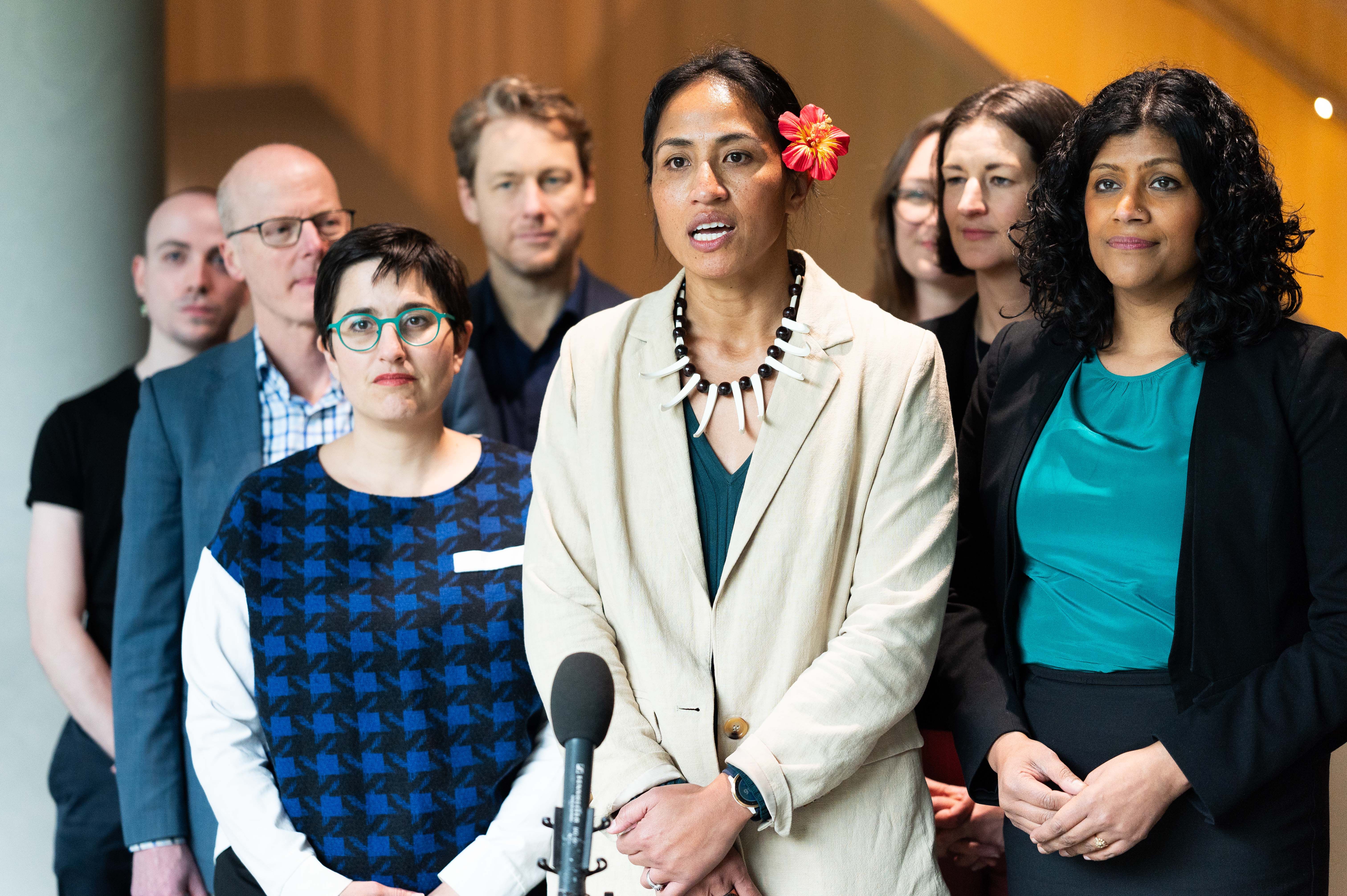

Anasina Gray-Barberio will be Australia's first Sāmoan MP in state politics.
Supplied
Meet the Sāmoan woman changing the face of Australian politics
Anasina Gray-Barberio will be Australia’s first ever Sāmoan MP in state parliament.





'Even 20 cents adds up’: Manukau commuters feel pinch of fare rise





'Even 20 cents adds up’: Manukau commuters feel pinch of fare rise
“I’m very honoured to be a Sāmoan woman in politics here in Victoria.”
Anasina Gray-Barberio (Falealupo, Fasito’o) beat seven other candidates, including two former mayors in a ballot of Green party members for the Melbourne Northern Metro area.
Speaking to PMN News, Gray-Barberio says it’s important for politicians to reflect the communities they represent.
“Politics is not just for middle-aged white men, no, politics is changing. There's more women in politics, but now we need to work on more diverse women coming into politics, women of colour, women with disabilities, trans women.
“I think this appointment is an opportunity to use the platform, but also use my privilege to bring communities and other women along too.”
The mother of two is the founder of Engage Pasefika, which aims for equal health outcomes for Pacific communities in Victoria. But Gray-Barberio told PMN’s Khalia Strong she felt compelled to do more.
“When you're in the trenches, you also see the significance of how policy can inflict harm on communities that they claim to serve.
“I couldn't just be a passive bystander anymore, so I joined the Greens Party and became politically engaged.
“Some might see it as a step of courage, but I think it's a responsibility to our next generation, to be honest, that they can't be what they don't see.”

Anasina Gray-Barberio alongside her fellow Victorian Green party MPs. Photo/Supplied
The Victorian Legislative council has 40 seats, this is divided into eight regions with five seats each. Gray-Barberio will be sworn in in November to replace Green MP Samantha Ratnam who is moving to national politics. The Green Party seat has been held since 2006 when the Northern Metro region was established.
Gray-Barberio hopes to inspire more Pacific youth to consider political action and leadership.
“Often we vote with tradition, and there's not a lot of political literacy as we grow up. We vote how our parents voted, how our family members and our networks voted.
“If they don't see representation in these upper echelons of politics, how can they ever aspire to think that there's another avenue of change through politics, through sitting around the decision-making table when policy is being developed and having a say and being part of those really important discussions.”
Born and raised
Gray-Barberio was born in Sāmoa, and went to Utuali’i Primary School and Leulumoega-Fou College before her family moved to Melbourne when she was 14.
“It was a culture shock. Victoria is a melting pot of ethnic diversity, I hadn't heard of a lot of different cultures when I had arrived here as a young person.”
The state of Victoria has a Pacific population of 79,006, with more than a third born in the islands. Gray-Barberio said the challenge of migrating to another country and the alienation is something she knows first-hand.
“A lot of young people here, to some extent, are experiencing that loss of dislocation from culture, and so it's really important to be able to ensure that their culture matters.
“For a lot of Pacific young people here, they are having to traverse the Western culture versus their own culture and the dichotomies that come with that is not easy.”
Political activism
Gray-Barberio has a Bachelor’s degree in Social work, and her political views are fueled by her neighbourhood surroundings.
“Being raised in Broadmeadows, there's lots of stigma as well for families and access barriers. We’re going through a cost of living crisis and a housing crisis.”
She hopes to advocate for early childhood education, gender equality, and said Australia should look to the Pacific to shape their climate change response.
“They're not doing a good job of reducing fossil fuels and their carbon footprint, so leveraging off our Pacific heritage and trying to put pressure on the government to do more with regards to their responsibility when it comes to climate change.”